Jaw Popping and Pain: What It Means for Your Health
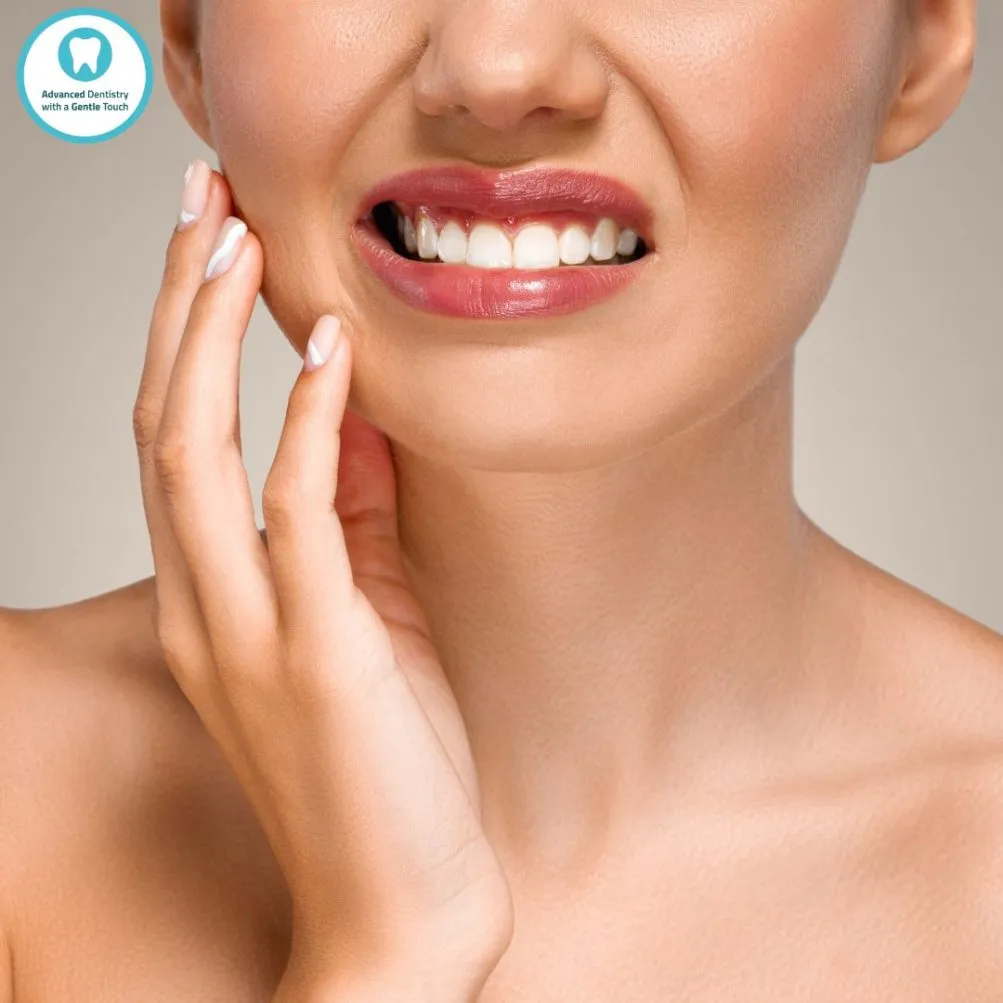
Jaw popping refers to a clicking or popping sound that happens when you open your mouth, chew, or speak. It can also cause pain or discomfort in the jaw joint located just in front of your ear. While this might seem harmless, frequent jaw popping or pain can be a sign of a more serious condition, like a temporomandibular joint (TMJ) disorder. TMJ disorders affect the joints and muscles responsible for jaw movement, making TMJ treatment important for relief and prevention of further complications.
Jaw problems are more common than many people realize and can interfere with everyday tasks such as eating, talking, or even yawning. Over time, untreated jaw issues can cause more serious problems, like ongoing jaw pain, difficulty opening your mouth, or headaches caused by clenching your jaw.
Understanding the causes of jaw popping and pain is key to addressing the problem. Often, these symptoms are linked to TMJ disorders, which may involve the muscles that control jaw movement or the jaw joint itself. Seeking help early from a professional, urgent care dentist can help prevent long-term damage and provide relief so you can enjoy daily life without discomfort.
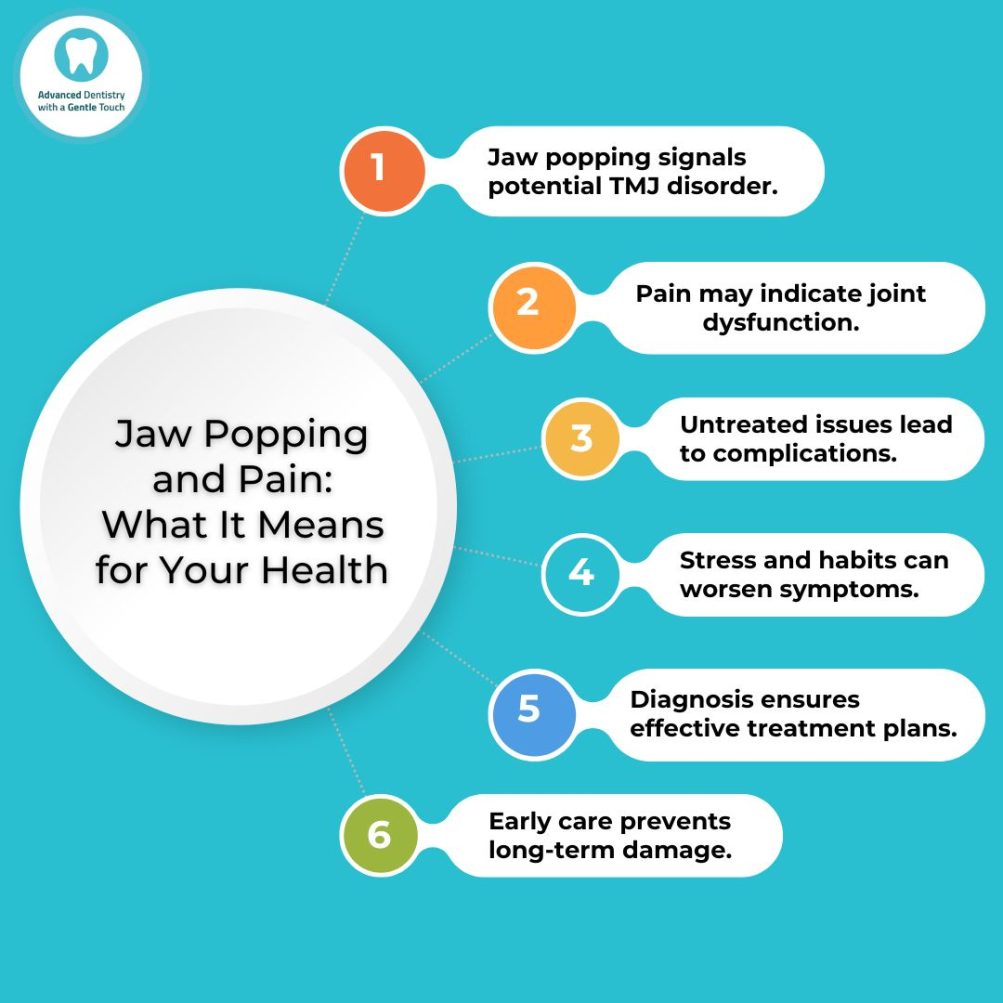
What Causes Jaw Popping and Pain?
Jaw popping and pain can occur for various reasons, ranging from medical conditions to everyday habits. Understanding the causes helps in identifying effective solutions. Below are the primary reasons for jaw discomfort.
Temporomandibular Joint (TMJ) Disorders
TMJ disorders are one of the most common causes of jaw popping and pain. The TMJ, located near the ear, acts as a hinge connecting your jawbone to your skull. When this joint is not functioning correctly, it can lead to symptoms like clicking sounds, jaw locking, and discomfort while chewing.
People with TMJ disorders may notice pain that radiates to other areas, such as the ears, neck, or head. Jaw popping while chewing or opening your mouth is a typical sign of dysfunction in this joint. Early diagnosis and treatment are essential to prevent permanent damage and improve jaw function.
Physical and Structural Causes
Certain physical factors can also contribute to jaw popping and pain. Misaligned teeth, for example, place uneven pressure on the jaw, leading to strain. Injuries to the jaw can damage the joint or surrounding muscles, causing discomfort and limited movement.
Conditions like arthritis may also affect the temporomandibular joints, leading to inflammation and stiffness. Another common cause is bruxism, or teeth grinding, which puts excessive pressure on the jaw and can lead to popping sounds during movement.
See also Breast Cancer Linked to Gum Disease and Tooth Loss
Behavioral and Lifestyle Triggers
Daily habits and lifestyle choices play a significant role in jaw health. Stress is a major factor, as it often leads to jaw clenching or teeth grinding, both of which strain the muscles that control jaw movement. Poor posture, especially when sitting for long periods, can misalign the jaw and increase tension.
Repetitive behaviors like chewing gum or biting nails can overwork the jaw joint, making it more prone to popping and pain. Addressing these triggers through behavioral changes and stress management can reduce symptoms and improve long-term jaw health.
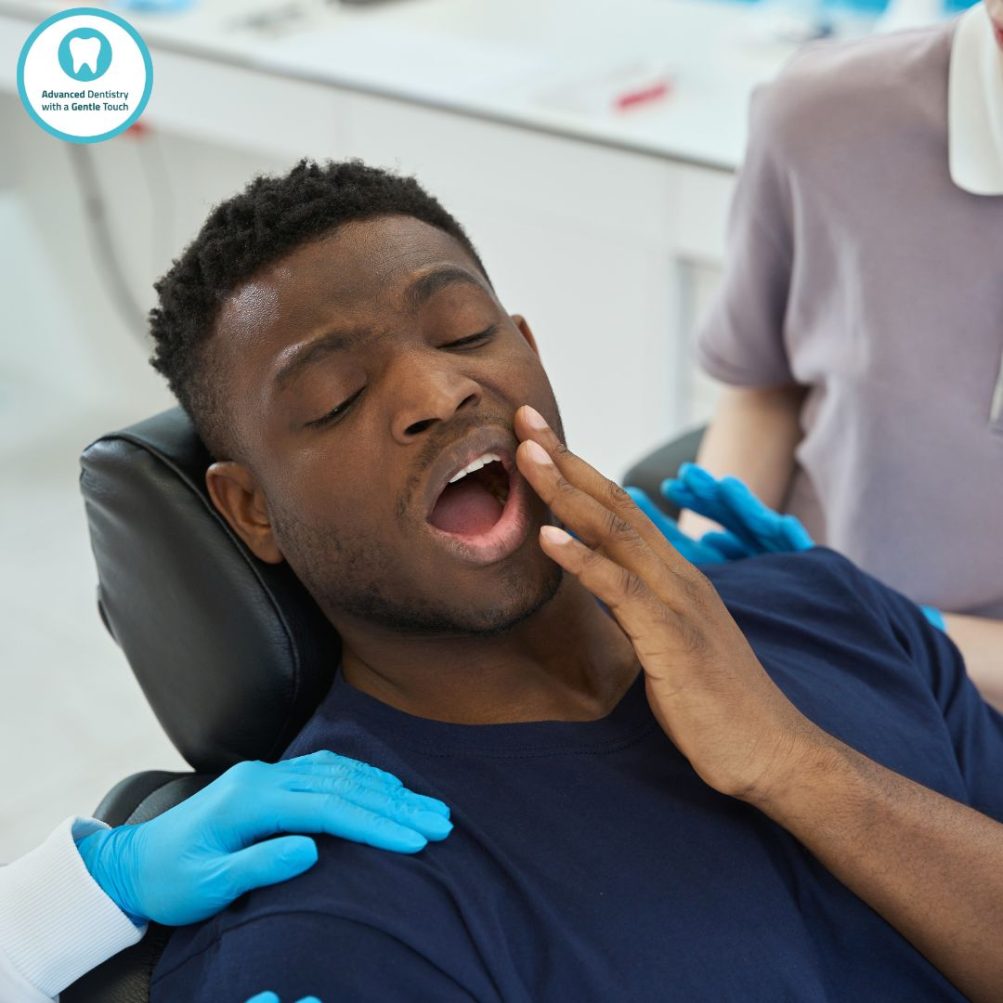
When Should You Be Concerned About Jaw Popping?
Jaw popping is not always a cause for alarm, but certain symptoms require attention. Knowing when to seek help can prevent long-term complications and improve your jaw’s health.
Warning Signs
Chronic jaw popping, especially when accompanied by pain, should never be ignored. Warning signs include persistent discomfort, difficulty opening your mouth, or swelling near the jaw joint. If your jaw locks in an open or closed position, it may indicate a severe issue with the temporomandibular joint (TMJ).
Additional symptoms, like redness, tenderness, or fever, could signal an underlying infection in the jaw. Arthritis-related conditions may also cause joint stiffness, limited movement, or clicking sounds. When these signs occur, visiting an urgent care dentist or a TMJ specialist is highly recommended.
Potential Health Risks
Untreated jaw popping and pain can lead to serious health risks over time. Chronic headaches from clenching the jaw or tension in the jaw muscles are common complications. Dental problems, such as worn-down teeth from grinding, can also result.
In severe cases, continuous stress on the jaw joint may cause degeneration of the temporomandibular joints. This can reduce your quality of life by making chewing, speaking, or yawning increasingly difficult. Seeking early treatment not only prevents long-term damage but also helps manage pain and discomfort effectively. Regular checkups with a dentist in Middletown, NJ, can help identify these issues early.
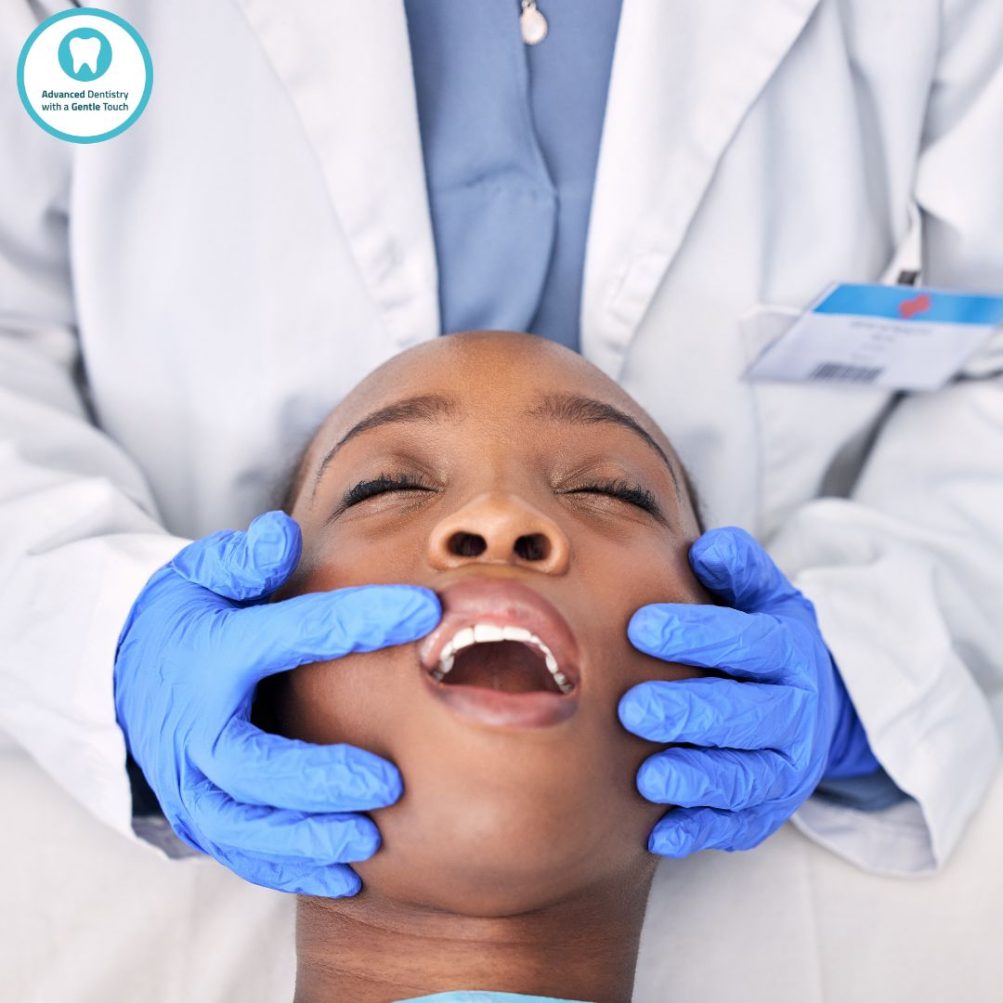
Diagnosing Jaw Popping and Pain
Accurately diagnosing jaw popping and pain is essential for effective treatment. Dentists and specialists use several methods to assess jaw health and identify underlying issues.
Clinical Examination
A clinical examination is the first step in diagnosing jaw problems. Dentists begin by palpating the jaw and surrounding muscles to check for tenderness or swelling. They listen for sounds like clicks or pops when you open your mouth or chew, which may indicate temporomandibular joint (TMJ) dysfunction.
See also Progressive Orthodontics
Assessing jaw mobility is also critical. This includes evaluating the range of motion and checking for signs of locking or restricted movement. A detailed medical history helps identify contributing factors such as injuries, stress, or habits like teeth grinding.
Imaging and Diagnostic Tools
Imaging tools provide deeper insights into jaw health. X-rays offer a clear view of the bones, helping detect fractures, arthritis, or joint degeneration. MRIs examine soft tissues like the cartilage disc within the TMJ, revealing misalignment or damage.
CT scans provide detailed images of the bone structure and can help identify structural abnormalities or tumors. These tools are invaluable for ruling out other potential causes of jaw popping, such as infections or cysts. Together, a clinical examination and diagnostic imaging allow dentists to create a tailored treatment plan to address the root cause of jaw discomfort.
Treatment Options for Jaw Popping and Pain
If your jaw keeps popping or causing pain, there are many ways to treat it. Starting with simple home remedies and moving to professional treatments can often help. In rare cases, surgery might be needed for severe issues.
Self-Care and Home Remedies
Home remedies can help relieve jaw popping and pain. Applying an ice pack to reduce swelling or a warm compress to relax muscles can be effective. These can soothe the temporomandibular joints (TMJ), located near the front of your ear.
Eating soft foods, like mashed potatoes or yogurt, reduces the strain on your jaw. Avoid hard foods or chewing gum, as they can worsen symptoms. Jaw exercises are another useful step to stop jaw popping by relaxing the muscles that control jaw movement.
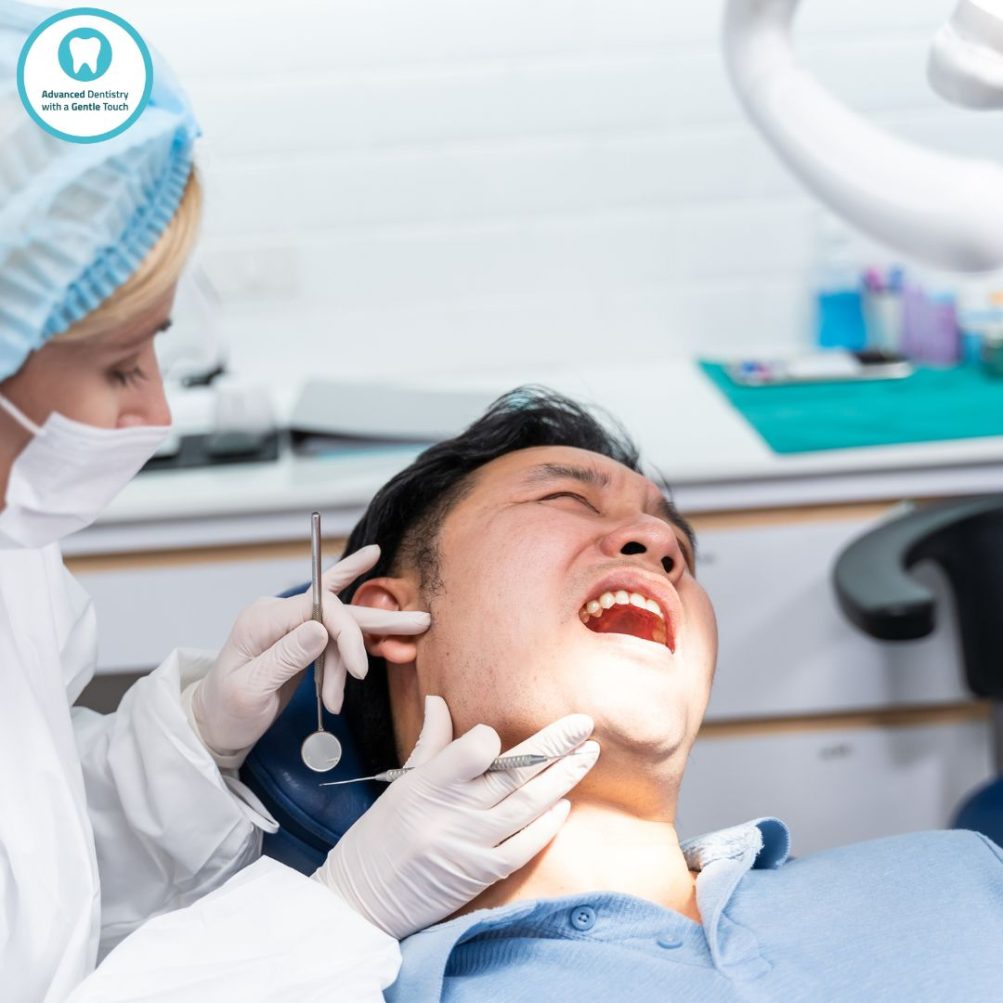
Professional Non-Surgical Treatments
Non-surgical options are often recommended when self-care isn’t enough. A dentist may suggest a custom-made dental appliance, like a nightguard, to reduce jaw pressure and stop grinding. These appliances help protect the jaw joint and muscles.
Physical therapy can also help strengthen your jaw muscles and improve movement. Medications, like anti-inflammatories or muscle relaxants, reduce pain and help the jaw heal. Some treatments, like transcutaneous electrical nerve stimulation (TENS), improve blood flow and reduce tension in the jaw joint.
Surgical Interventions
Surgery is usually the last option. For some, minimally invasive arthroscopy can clean or repair the joint. In more serious cases, joint replacement may be needed.
Surgery has risks, such as infection, so it’s only done when other treatments fail. An urgent care dentist or a specialist, like a Red Bank dentist, can help decide if surgery is necessary. Less invasive methods can also treat most jaw popping and pain.
See also Teeth Whitening Even the Darkest Ones Can Be Whitened
Preventing Jaw Popping and Pain
Preventing jaw popping and pain involves adopting healthy habits and seeking professional help when needed. These steps can protect your jaw from long-term problems.
Healthy Habits and Lifestyle Adjustments
Simple lifestyle changes can reduce strain on your jaw and prevent issues. Maintaining good posture, especially when sitting, keeps your jaw aligned. Managing stress is also crucial, as clenching your jaw or grinding your teeth often happens during tense moments.
Avoiding hard or chewy foods, like tough meats or gum, can reduce pressure on the temporomandibular joints (TMJ). Gentle jaw exercises can improve flexibility and strengthen the muscles that control jaw movement. These exercises also help reduce popping and pain over time.
Importance of Regular Check-Ups
Regular dental visits are key to preventing jaw problems. Dentists can spot early signs of issues, such as misaligned teeth or TMJ dysfunction before they worsen. If symptoms like a popping jaw or persistent pain continue, seeking professional advice is essential.
An urgent care dentist can help . Dr. Korwin is an emergency dentist in New Jersey who can provide personalized recommendations. Early intervention helps prevent complications and keeps your jaw healthy for the long term.
Conclusion
Jaw popping and pain can interfere with daily life, but addressing these issues early can prevent serious complications. Common causes include temporomandibular joint (TMJ) disorders, physical injuries, and habits like teeth grinding or poor posture. Recognizing symptoms such as clicking sounds, jaw locking, or discomfort while chewing is important for getting the right care.
Simple steps, like improving posture, eating softer foods, and performing jaw exercises, can help protect the muscles that control jaw movement. Preventive habits reduce strain on the jaw and may stop the popping sounds over time.
If your jaw keeps popping or you feel persistent pain, don’t wait for it to worsen. Visiting Dr. Korwin, a trusted dentist in Middletown, NJ, can help identify the problem. Early treatment relieves pain and reduces the risk of permanent damage to the jaw joint. Taking care of your jaw health improves your overall well-being. With the right approach, you can avoid long-term problems and enjoy a healthier, pain-free life.
